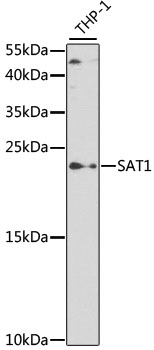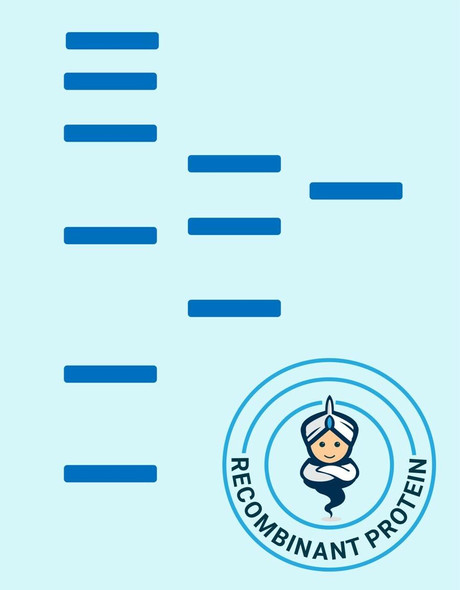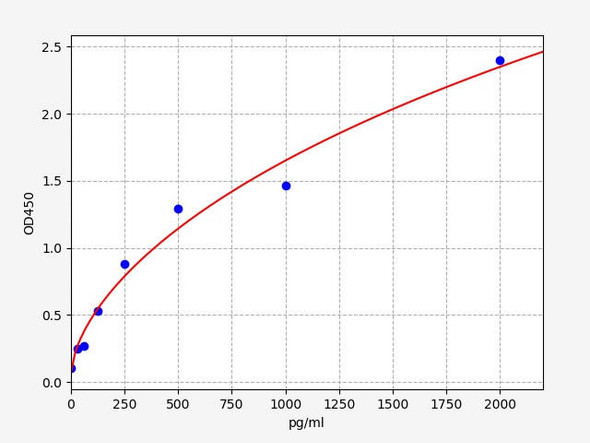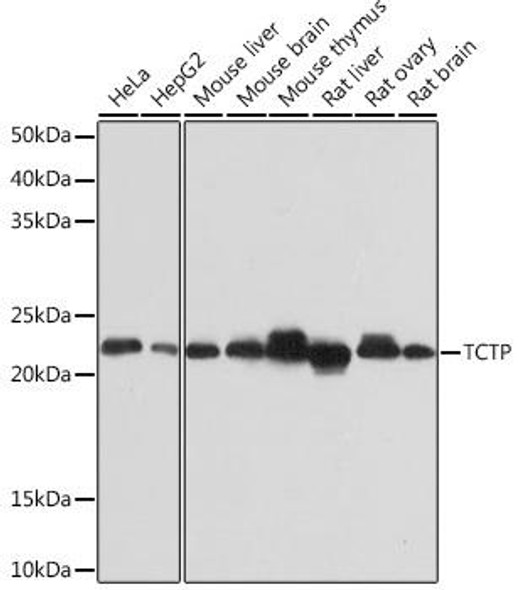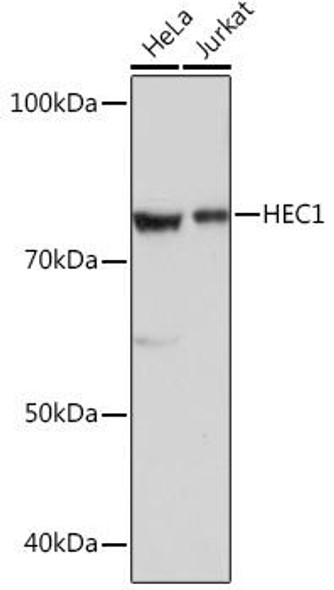Description
Anti-SAT1 Antibody (CAB2506)
The SAT1 Polyclonal Antibody (CAB2506) is a valuable tool for researchers studying the SAT1 gene, which encodes for the enzyme spermidine/spermine N1-acetyltransferase. This enzyme plays a crucial role in polyamine metabolism, which is involved in cell proliferation, differentiation, and apoptosis.Raised in rabbits, this antibody is highly specific and reactive with human samples, making it ideal for use in Western blot applications. By binding to the SAT1 protein, researchers can effectively detect and analyze its expression in various cell types.The SAT1 Polyclonal Antibody is particularly useful for studies in cancer research, as dysregulation of polyamine metabolism has been linked to tumorigenesis and tumor progression.
By understanding the role of SAT1 in these processes, researchers can potentially identify new therapeutic targets for cancer treatment.Overall, the SAT1 Polyclonal Antibody is a valuable tool for researchers investigating the function of the SAT1 gene and its implications in various diseases, paving the way for advancements in personalized medicine and targeted therapies.
| Antibody Name: | Anti-SAT1 Antibody |
| Antibody SKU: | CAB2506 |
| Antibody Size: | 20uL, 50uL, 100uL |
| Application: | WB |
| Reactivity: | Human |
| Host Species: | Rabbit |
| Immunogen: | Recombinant fusion protein containing a sequence corresponding to amino acids 1-171 of human SAT1 (NP_002961.1). |
| Application: | WB |
| Recommended Dilution: | WB 1:500 - 1:2000 |
| Reactivity: | Human |
| Positive Samples: | THP-1 |
| Immunogen: | Recombinant fusion protein containing a sequence corresponding to amino acids 1-171 of human SAT1 (NP_002961.1). |
| Purification Method: | Affinity purification |
| Storage Buffer: | Store at -20'C. Avoid freeze / thaw cycles. Buffer: PBS with 0.02% sodium azide, 50% glycerol, pH7.3. |
| Isotype: | IgG |
| Sequence: | MAKF VIRP ATAA DCSD ILRL IKEL AKYE YMEE QVIL TEKD LLED GFGE HPFY HCLV AEVP KEHW TPEG HSIV GFAM YYFT YDPW IGKL LYLE DFFV MSDY RGFG IGSE ILKN LSQV AMRC RCSS MHFL VAEW NEPS INFY KRRG ASDL SSEE GWRL FKID KEYL LKMA TEE |
| Gene ID: | 6303 |
| Uniprot: | P21673 |
| Cellular Location: | Cytoplasm |
| Calculated MW: | 20kDa |
| Observed MW: | 20kDa |
| Synonyms: | DC21, KFSD, KFSDX, SAT, SSAT, SSAT-1, SAT1 |
| Background: | The protein encoded by this gene belongs to the acetyltransferase family, and is a rate-limiting enzyme in the catabolic pathway of polyamine metabolism. It catalyzes the acetylation of spermidine and spermine, and is involved in the regulation of the intracellular concentration of polyamines and their transport out of cells. Defects in this gene are associated with keratosis follicularis spinulosa decalvans (KFSD). Alternatively spliced transcripts have been found for this gene. |
| UniProt Protein Function: | SAT: Enzyme which catalyzes the acetylation of polyamines. Substrate specificity: norspermidine = spermidine >> spermine > N(1)-acetylspermine > putrescine. This highly regulated enzyme allows a fine attenuation of the intracellular concentration of polyamines. Also involved in the regulation of polyamine transport out of cells. Acts on 1,3-diaminopropane, 1,5-diaminopentane, putrescine, spermidine (forming N(1)- and N(8)-acetylspermidine), spermine, N(1)-acetylspermidine and N(8)-acetylspermidine. Defects in SAT1 may be a cause of keratosis follicularis spinulosa decalvans X-linked (KFSDX). A rare disorder affecting the skin and the eye. Affected men show thickening of the skin of the neck, ears, and extremities, especially the palms and soles, loss of eyebrows, eyelashes and beard, thickening of the eyelids with blepharitis and ectropion, and corneal degeneration. Belongs to the acetyltransferase family. |
| UniProt Protein Details: | Protein type:Amino Acid Metabolism - arginine and proline; EC 2.3.1.57; Acetyltransferase Chromosomal Location of Human Ortholog: Xp22.1 Cellular Component: intracellular; cytosol Molecular Function:protein binding; diamine N-acetyltransferase activity; spermidine binding Biological Process: spermidine acetylation; polyamine biosynthetic process; angiogenesis; putrescine catabolic process; polyamine metabolic process; regulation of cell proliferation Disease: Keratosis Follicularis Spinulosa Decalvans, X-linked |
| NCBI Summary: | The protein encoded by this gene belongs to the acetyltransferase family, and is a rate-limiting enzyme in the catabolic pathway of polyamine metabolism. It catalyzes the acetylation of spermidine and spermine, and is involved in the regulation of the intracellular concentration of polyamines and their transport out of cells. Defects in this gene are associated with keratosis follicularis spinulosa decalvans (KFSD). Alternatively spliced transcripts have been found for this gene.[provided by RefSeq, Sep 2009] |
| UniProt Code: | P21673 |
| NCBI GenInfo Identifier: | 114322 |
| NCBI Gene ID: | 6303 |
| NCBI Accession: | P21673.1 |
| UniProt Related Accession: | P21673 |
| Molecular Weight: | 171 |
| NCBI Full Name: | Diamine acetyltransferase 1 |
| NCBI Synonym Full Names: | spermidine/spermine N1-acetyltransferase 1 |
| NCBI Official Symbol: | SAT1 |
| NCBI Official Synonym Symbols: | SAT; DC21; KFSD; SSAT; KFSDX; SSAT-1 |
| NCBI Protein Information: | diamine acetyltransferase 1; putrescine acetyltransferase; diamine N-acetyltransferase 1; polyamine N-acetyltransferase 1; spermidine/spermine N1-acetyltransferase alpha |
| UniProt Protein Name: | Diamine acetyltransferase 1 |
| UniProt Synonym Protein Names: | Polyamine N-acetyltransferase 1; Putrescine acetyltransferase; Spermidine/spermine N(1)-acetyltransferase 1; SSAT; SSAT-1 |
| Protein Family: | Serine acetyltransferase |
| UniProt Gene Name: | SAT1 |
| UniProt Entry Name: | SAT1_HUMAN |


